‘The Woman King’ Star Viola Davis And Actor Julius Tennon Defend Film’s Historical Revisionism: “We Have To Take License, We Have To Entertain People”
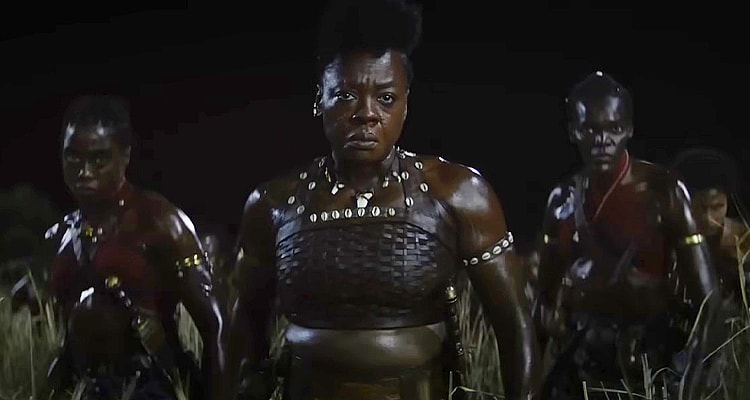
Amidst criticism that the film avoids addressing its main subject’s heavy participation in the Atlantic slave trade, star Viola Davis and actor Julius Tennon have defended The Woman King’s decision to shy away from the Kingdom of Dahomey’s active participation in one of history’s darker moments on the grounds that “we have to entertain people.”
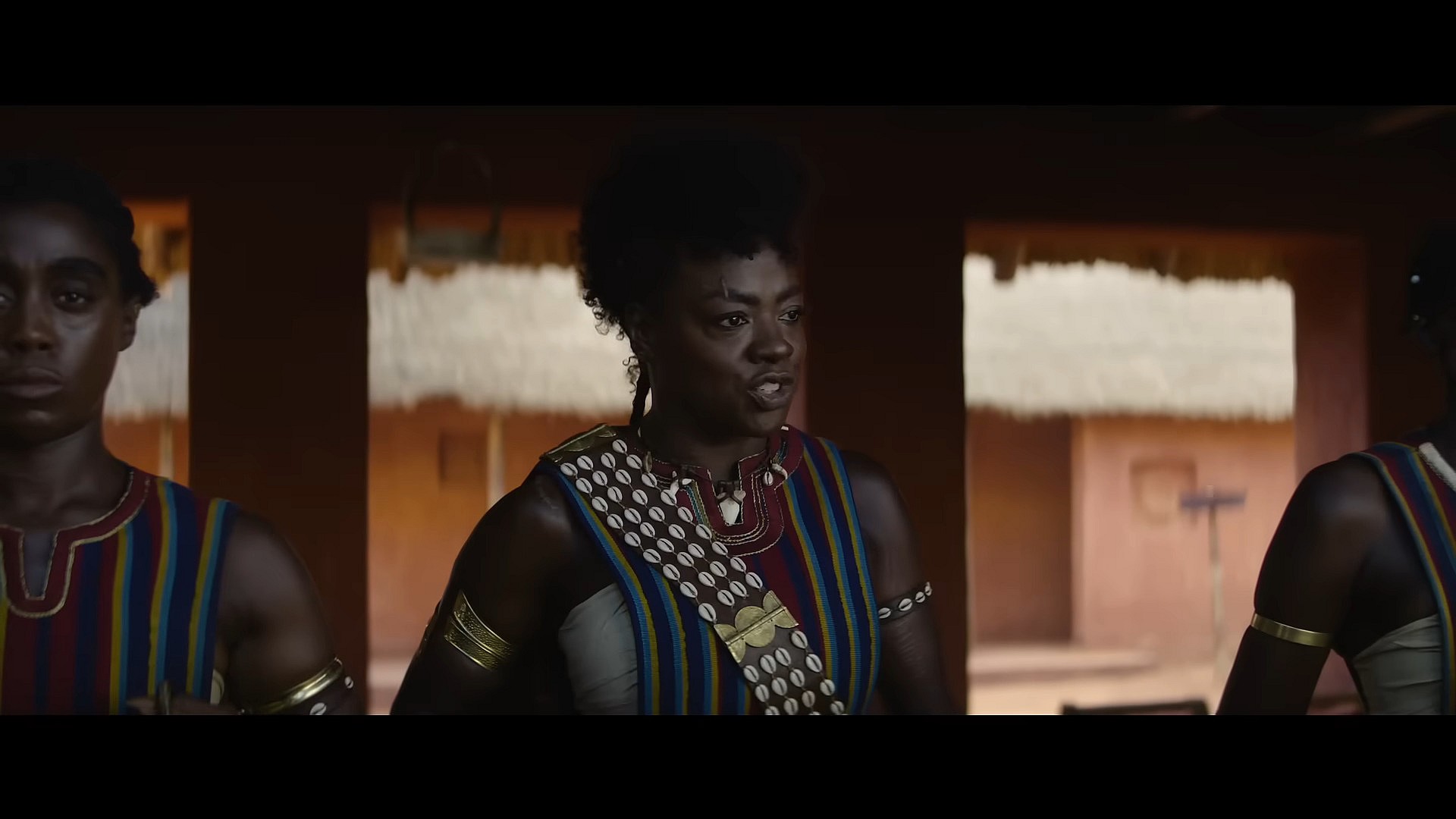
Set in the historical African kingdom of Dahomey (now modern day Benin) during the opening years of the 1820s, The Woman King tells a fictionalized version of the 1823 Dahomey Revolt and focuses on the role of General Nanisca (Davis) and her all-female Agojie warriors as they fight to liberate their state from subordination under the rival Oyo Empire.
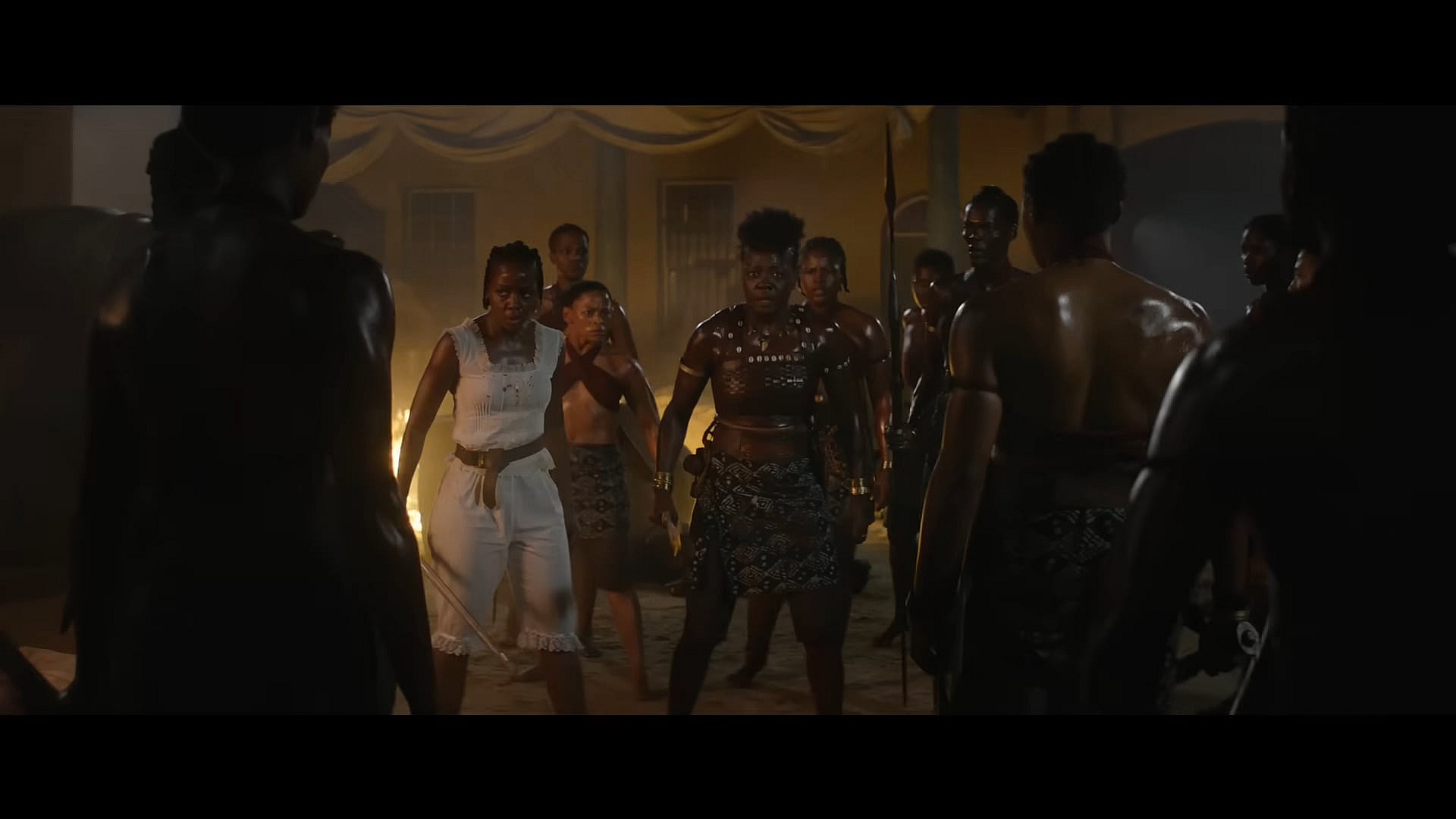
However, the Dahomey’s existence was not entirely as altruistic as the film presents it, as in reality, the kingdom was one of the heaviest participants in the African slave trade.
Throughout its entire existence, the Dahomey’s economic stability was based on their enslavement of neighboring tribes, whose peoples would be captured by the kingdom by way of war or specifically targeted ‘restocking’ raids.

From there, the Dahomey would force the captured into slavery, with some being sold off to European slavers for profit and others kept in servitude by the kingdom’s own elite.
Yet this aspect of the Dahomey’s history receives little attention in The Woman King, as the film’s tackling of the subject ultimately amounts to a B plot in which protagonist General Nansica is shown arguing to be a vocal opponent of the opponent – to no avail.

As a result of this creative decision, The Woman King’s narrative faced a massive wave of pushback in the weeks leading up to its September 16th premiere, as critics felt it was disingenuous to ignore real world history in favor of a ‘girl boss’ narrative – particularly when the cast and crew’s neoliberal-leaning ideological peers would absolutely shred any film that tried to do the same with a white or Asian subject.

But these criticisms have done little to phase Davis and Tennon, who believe that said side-stepping of the historical record was necessary for the film’s success.
Asked by Variety senior awards editor Clayton Davis during a post-premiere interview for their thoughts on the pushback, Davis asserted, “First of all, I agree with [director] Gina Prince-Bythewood’s saying that you’re not going to win an argument on Twitter.”
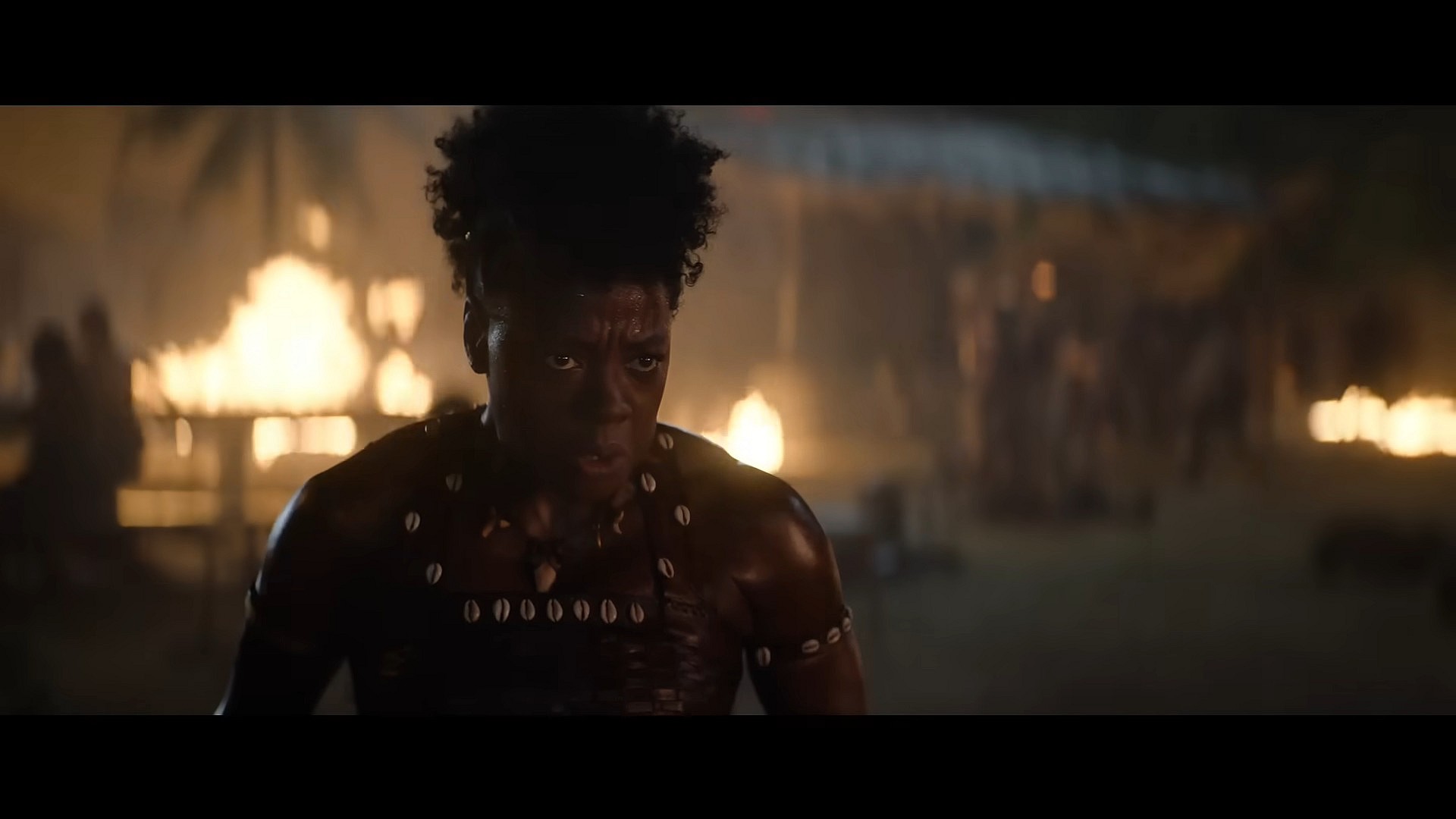
“We entered the story where the kingdom was in flux, at a crossroads,” she explained. “They were looking to find some way to keep their civilization and kingdom alive. It wasn’t until the late 1800s that they were decimated. Most of the story is fictionalized. It has to be.”
In support of Davis’ argument, her husband Tennon, who appears in the film as Moru, added, “We are now what we call ‘edu-tainment.’”
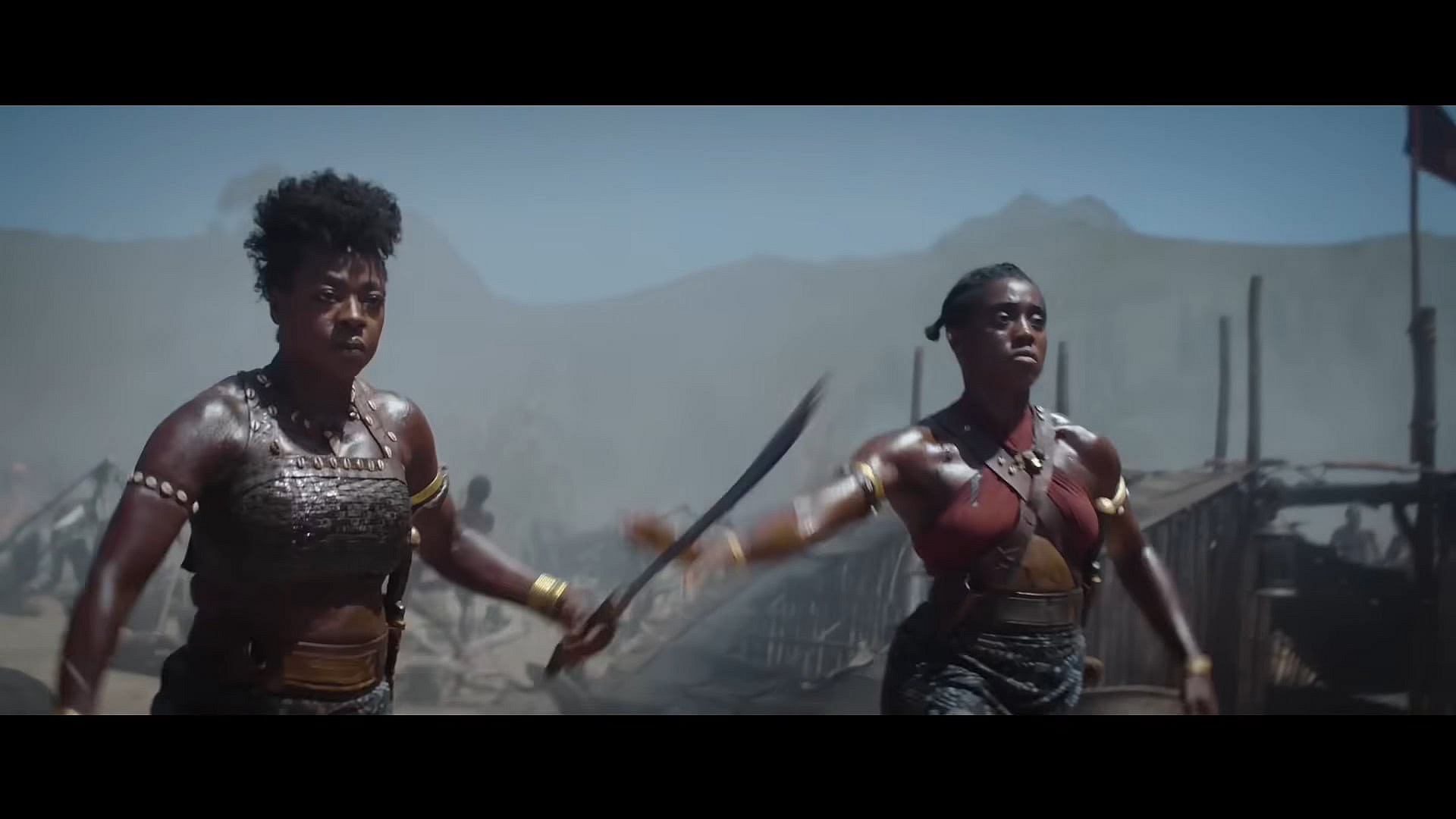
“It’s history but we have to take license,” he said. “We have to entertain people. If we just told a history lesson, which we very well could have, that would be a documentary. Unfortunately, people wouldn’t be in the theaters doing the same thing we saw this weekend.”
“We didn’t want to shy away from the truth,” continued Tennon. “The history is massive and there are truths on that that are there. If people want to learn more, they can investigate more.”
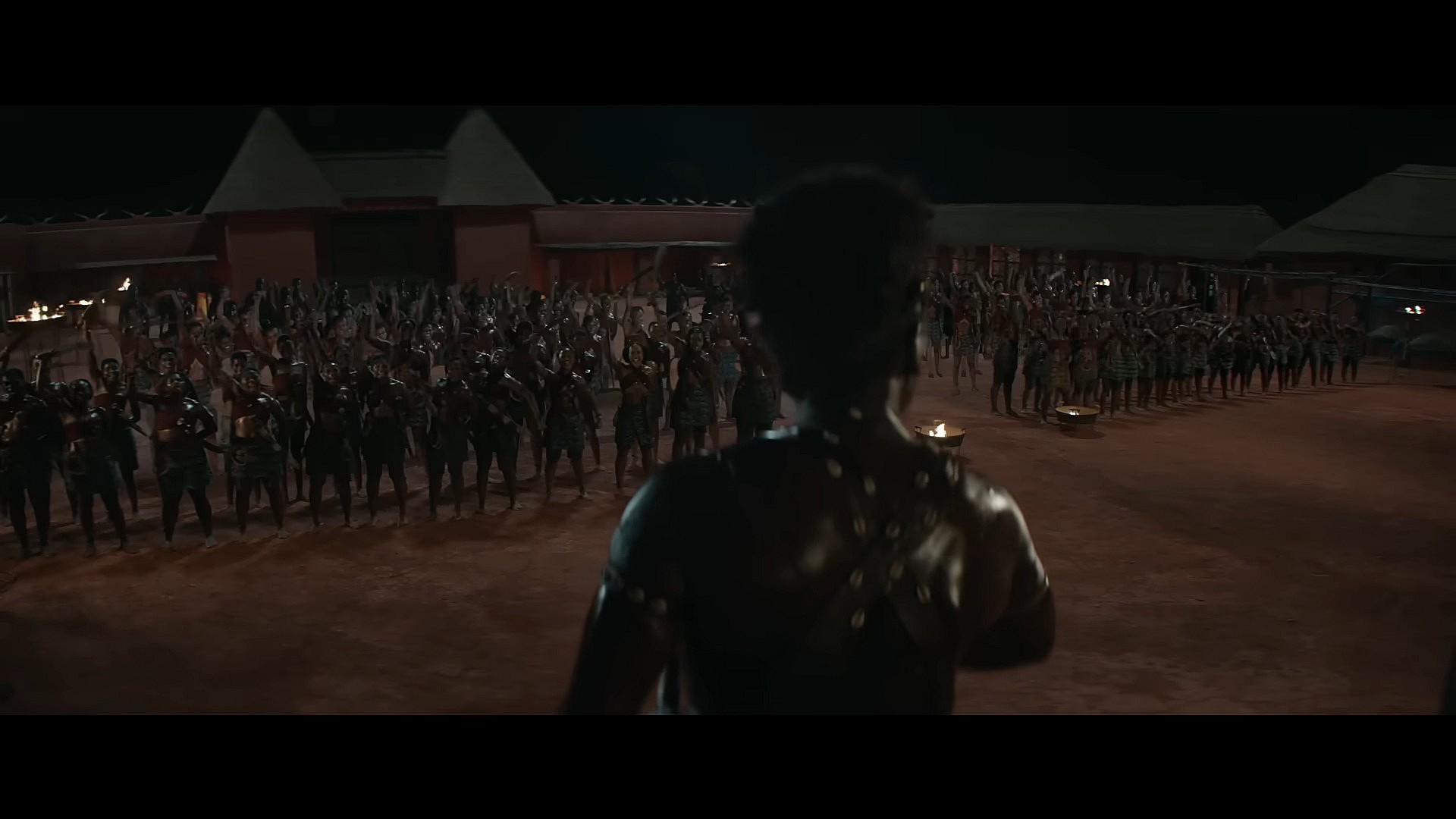
Still responding to to the initial question, Davis then went on an unrelated tangent and recalled, “Part of the story that hit me as an artist was these women were unwanted.”
“They were recruited between the ages of eight and 14,” she detailed. “They were the women who were not considered desirable. No one wanted to marry them. They were unruly. They were recruited by the King to fight for the kingdom of Dahomey. They were not allowed to marry or have children. The ones who refused the call were beheaded. That’s also a part of the story.”
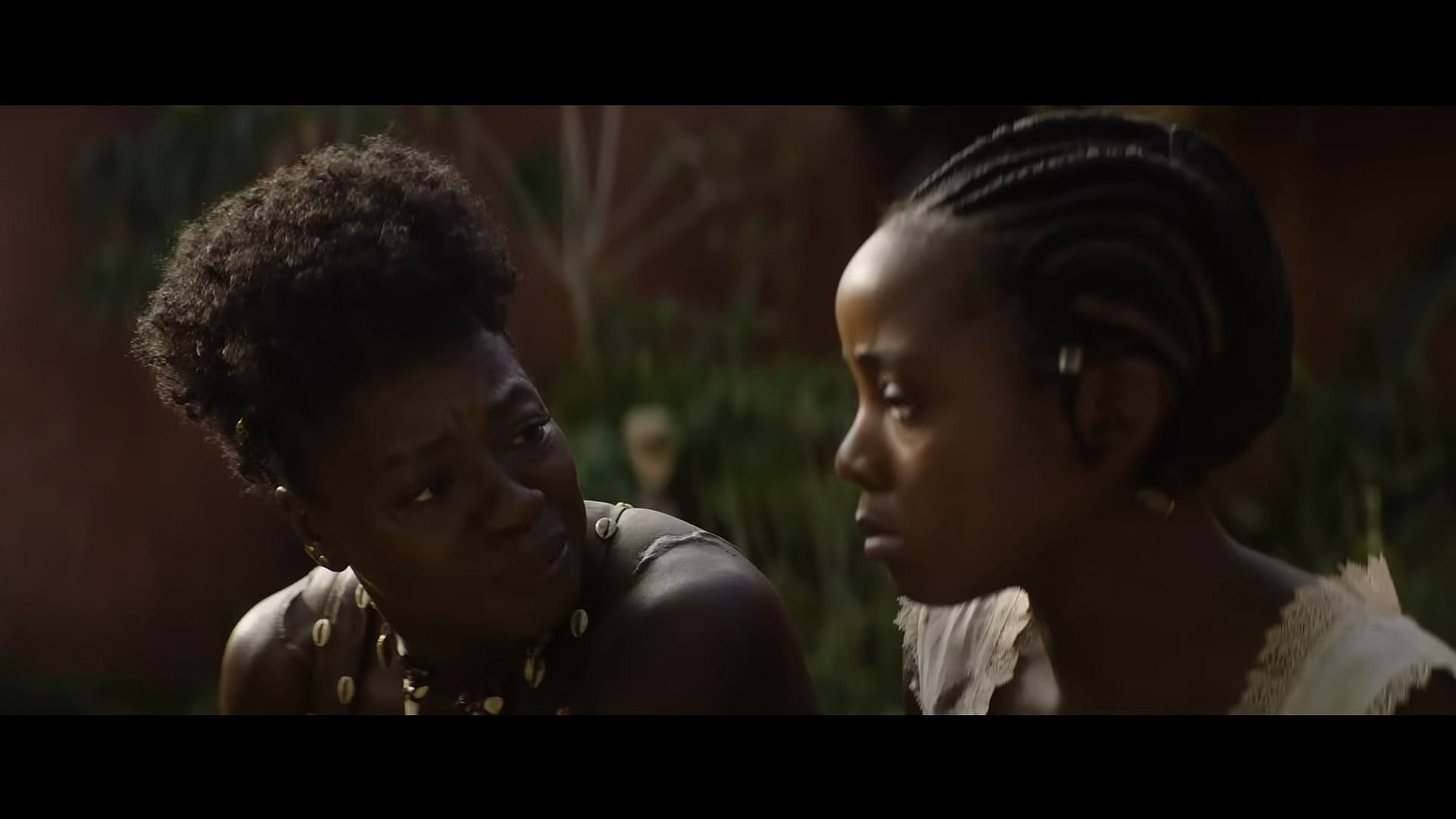
“People really are being emotionally shifted,” Davis’ aside drifted on. “I saw a TikTok video today of women in a bathroom of an AMC theater, and I don’t think they knew each other. They were all chanting and ruminating. That cannot be quantified by words.”

The Woman King is now playing in theaters.
